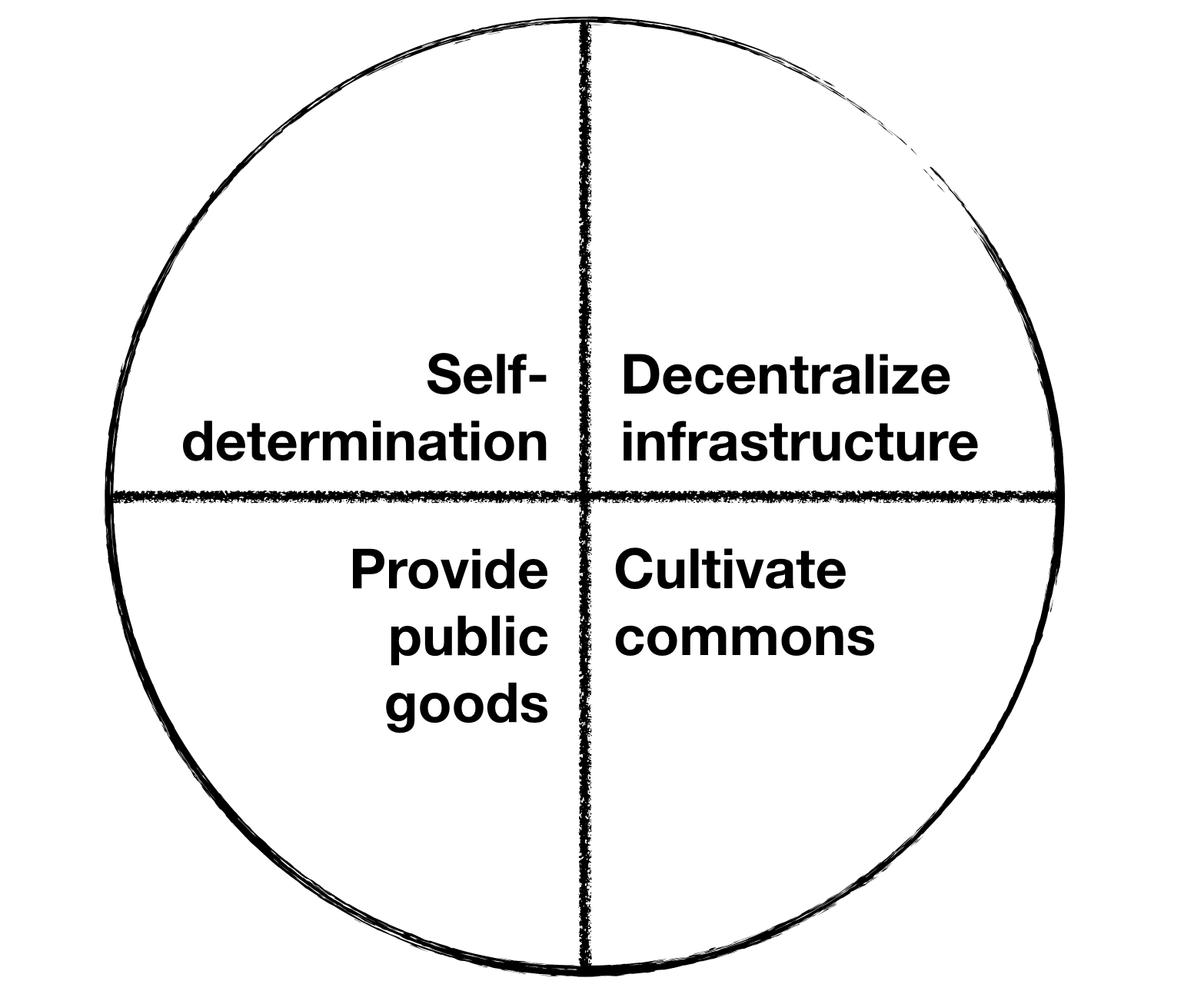This post documents the outcome of the discussion of the core concepts breakout group (Anna, Joanna, Kasha, Diego, Duncan, Stacco & Paul) that took place suring the morning of the second day.
Process
The group set out to identify the core concepts that need to be covered by a new frame for digital policy making in the EU. We took the merged narrative that was discussed in the previous session as a point of departure. Each member of the breakout group individually indentified (wrote down) the 4 most important concepts from the merged narrative narrative. We then compared notes and realtively quickly realized that there was a lot of overlap between the core concepts identified. We then started discussing the individual concepts with the most overlap. In descending order of initial agreement within the group these were:
- Concepts related to the commons
- Concepts related to personal souvereignity and self determination
- Concepts related to public institutions and the provision of public goods
- Concepts related to the need to break up dominant platforms and to decentralize infrastructure.
We then discussed the concepts in order to forge agreement within the group on a more precise definition of each of the 4 concepts. This resulted in the following presentation back to the group.
Outcome

Note that the textin italic is my personal summary of these concepts. It probably does not catch all the nuances of our discussion and should be considered open for revision/improvement. The rest of the text and the image above are literal reproductions of the text on the flipchart.
1.Self determination in the digital environement. This concept incorporates the right to privacay, to control ones own data and the need for algoritmic transparency in the online environment. We have purposefully avoided the alternative term "individual sovereignity" and have also decided not to add "personal" given that this also applies to the rights of groups.
2.Move towards decentralized infrastructures and prevent monoplies and the privatization of public goods. We have chosen this concept rather than a more agressive call for the breaking up the tech monoplists in order to avoid having a negative message. This concept includes should be seen as encompassing ideas about creating decentralized European infrastructure and as such it can also be read to be about promoting European technological sovereignity/independence
3.Provide public goods and services. This concept is about supporting public institutions (cultural heritage institutions, educational and academic institutions) and other non-market actors. It embraces the idea that the provision of public goods is an important element of a equitable society that cannot be left to the market.
4.Cultivate commons (meaning community governance of ressources). This concept is about supporting commons based alternatives to the market. It is about supporting community governance structures and commonly governed spaces and stresses that such structures and spaces are essential elememts must be seen equal alternatives to market mechanisms.
